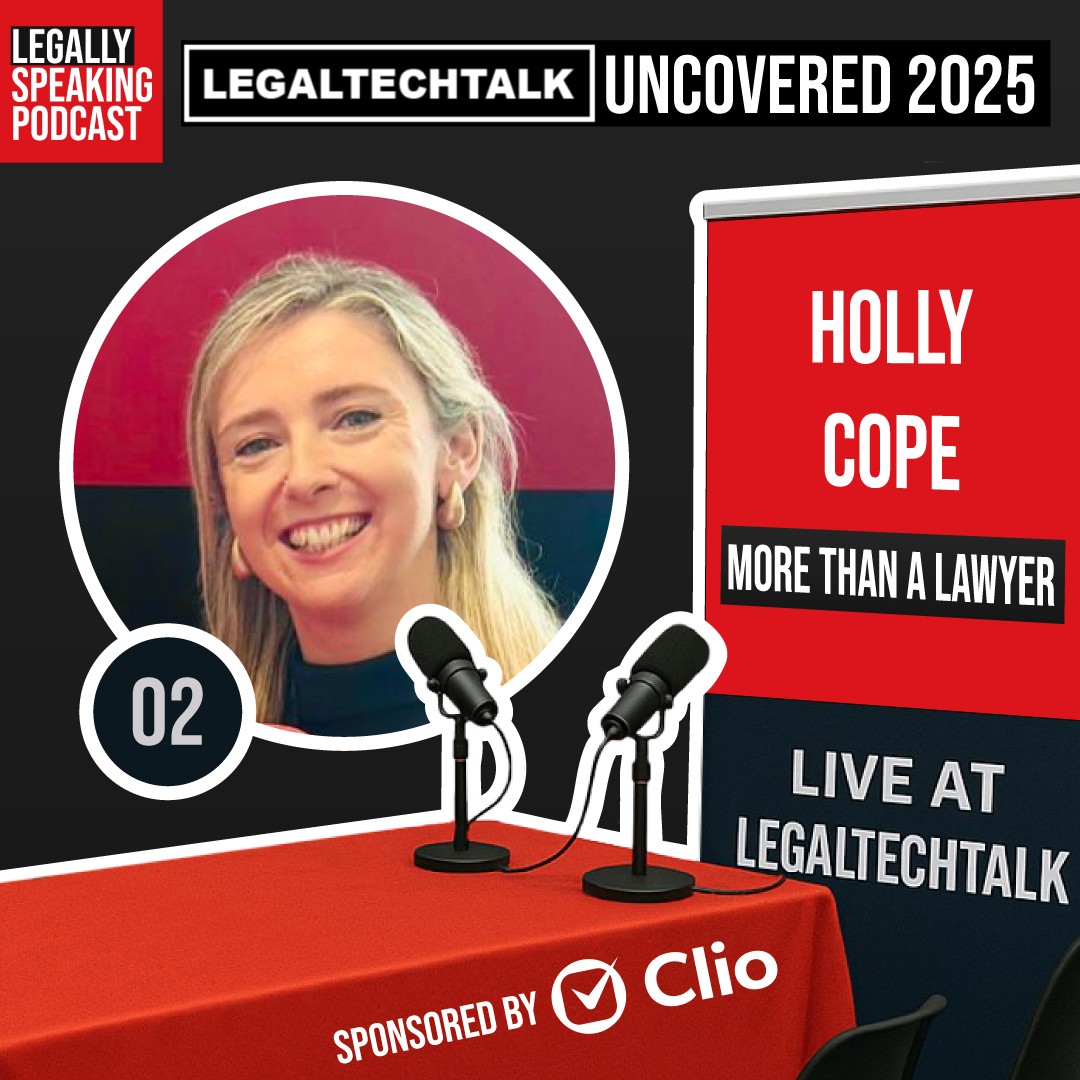
LegalTechTalk Uncovered 2025 – Holly Cope – E02
On our second episode of LegalTechTalk Uncovered 2025, we speak to Holly Cope. She is the
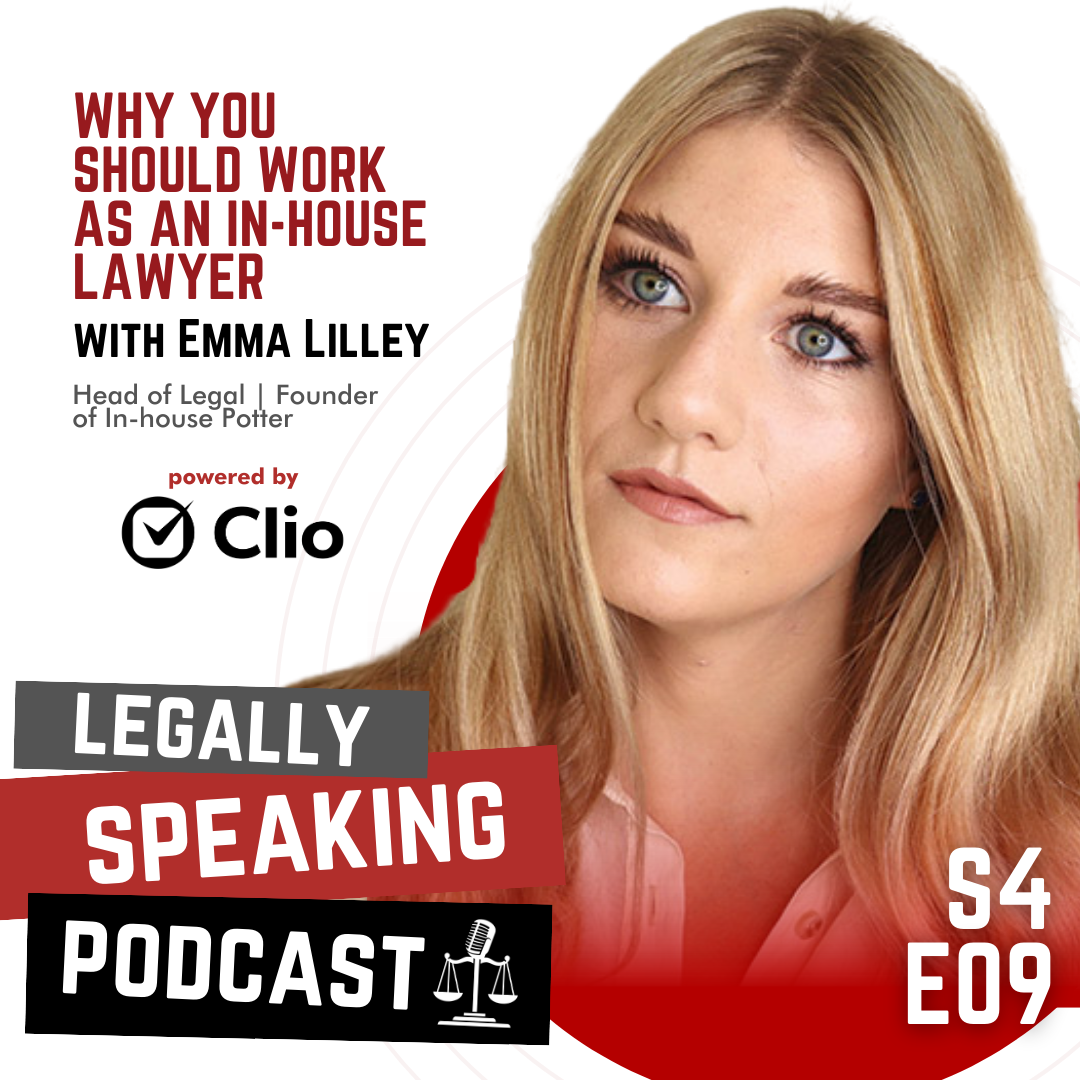
This week on the Legally Speaking Podcast, our host Robert Hanna speaks to Emma Lilley, an accomplished in-house solicitor and legal influencer.
Emma is currently the Sole Legal Counsel at SD Worx, and previously worked in-house for Manchester Airports Group (MAG) and WEX Europe Services.
She is widely known in the industry thanks to her popular @inhousepotterInstagram account, which provides tips to aspiring and practicing in-house solicitors around the world (she currently has over 7,500 followers!). She also runs the In House Potter blog for more in-depth insight and analysis on the area (www.inhousepotter.com). Through these platforms, she aims to boost awareness of in-house legal work, a space which is often overshadowed by private practice (especially for entry level roles).
In the full episode, she explains:
Robert Hanna (00:00):
Welcome to the Legally Speaking Podcast. I’m your host, Rob Hanna. This week. I’m delighted to be joined by Emma Lilly. Emma is the founder of the In-House Potter, a resource for students and in-house lawyers to provide them with the information needed to make the right choice for them. Emma is also currently working as the legal counsel for SD works and previously worked as an in-house solicitor at Manchester Airport Group, providing advice to all teams across three UK airports. So a very, very warm welcome Emma.
Emma Lilly (00:33):
Hi, Rob, how are you doing?
Robert Hanna (00:35):
Very, very well super excited about this one. So, before we dive into all your amazing achievements and what you’re doing for the legal community, we do have our customary ice-breaker question here on the Legally Speaking Podcast, which is: on the scale of one to 10, 10 being very real, how real would you rate the reality hit series Suits on a scale of one to 10? ,
Emma Lilly (00:58):
I don’t think I can give it any more than five, but I always have to caveat this with I’ve only spent three months in private practice, which I’m sure we’ll get onto. So I haven’t really experienced a law firm for a long period of time. But I also think that some of the stuff that’s mentioned like the legal buzzwords and things could be helpful for somebody who’s completely new to law. I’m not saying you can use it as a revision tool. Absolutely not, but I think it’s a great, like initial, maybe short, fictional introduction to the industry.
Robert Hanna (01:31):
Yeah, I think five’s a fair, a fair comment. So, before we talk about all things law and everything else that you’re doing, I think it’s always nice to start at the beginning. So, tell our listeners a little bit about your family background and upbringing.
Emma Lilly (01:43):
Oh, of course. It’s nice to be asked that question. Um, I grew up in Stoke, still live in the City of Stoke-on-Trent. Started off doing the usual part-time jobs as a waitress behind the bar whilst I was studying at 6th-Form and then kind of found my way into law through an undergraduate degree through clearing, um, and then during study in law, I moved into the world of gambling, not personally, but being employed by a big gambling company in the city. And, um, that kind of carried me through financially, whilst I was studying. So it was quick, pretty secure part-time role. Also provided me with a gap year in Australia. So I went to live and work in Oz.
Robert Hanna (02:26):
Wow!
Emma Lilly (02:26):
Yeah. And took 12 months off from studies, but it took around seven months actually working over there. But I’m full-time training prior to that. And then went back into the world of law, um, discovered in-house. Um, and the rest is history.
Robert Hanna (02:40):
Yeah. We’re definitely gonna dive more into that. So you’ve often mentioned that your route into law wasn’t necessarily that conventional. So, can you tell us a bit more about this and why you ended up studying the law?
Emma Lilly (02:52):
Of course. So, it wasn’t conventional right from the start in that, I didn’t study Law A-Level, was never on my list of careers that I thought I would end up in. Um, I didn’t get great A-Levels and by not great, I mean, one of them was an ‘E’ like, absolutely not, not great as in not, not three A*, but not great as in awful, less than average, far below average, which didn’t set me up in good stead for…what I wanted to do was study Music at university. So applied for music degrees, didn’t get in. Found myself on a-level results day, calling around universities, saying, what have you got in clearing? What courses can I get onto? And Stafford uni, local to me said, we’ve got a law degree. I was like, hang on. This sounds good. And it says, Oh, it’s with a foundation year. So you’ve got to do an extra year to qualify, to get onto the degree. So, four year course. Didn’t really have much choice, to be honest, it was local. It seemed like something different. I was always going to go to uni. I was, had it set in my mind that I wanted to go to uni. So I didn’t really consider the vocational courses, um, and just went for it really and fell into law that way.
Robert Hanna (04:00):
Yeah. Well, thanks for sharing that and what I love about you and with everything you’re producing, you’re just being your true, authentic self. And I think you’ve previously talked about how, when you’re going through your studies, looking for jobs, that you’re wary about telling people where you’re from because of preconceptions about success. This is something which is really insightful and I’m sure will resonate with many others in the profession. So can you tell us a bit more about why you felt that way?
Emma Lilly (04:24):
I can, yeah Rob. And I think it stems from comments made to me personally or to my group of friends that were studying Law from the local area or people that were from other cities that come to Stoke to study and had seen that as an automatic disadvantage. Um, I mean Stafford Uni Law School is incredible. It’s got its own part on campus, its own law library, like such a great place to study, but for some reason, because it’s in Stoke, it’s seen as, you know, less of a class than others. And I think that can carry through to the profession and others, there’s not just Law. There was always an elitism, um, attached to the city and things like that. But I’ve always had it jawed to me that I had less of a chance in the profession because I was from Stoke. So, just one of those comments…to provide an example would be, why did you choose to go to Stafford uni when you could’ve gone to another one in London, for example. And the reason why I chose to go there was because I didn’t have much choice, but I wasn’t going to say at that point, but you know, it’s a really difficult position to be put in by someone who’s, you know, a possible employer suggesting that that’s, you know, not great. So, I’ve always censored and I’m so, so proud of myself that I don’t do this anymore, but censored the answer to that question. It’s always Cheshire border or Staffordshire. But now, no, I’m a Stokey through and through.
Robert Hanna (05:47):
And good for you and good for you. And that’s why I’m sure many, many people are really buying into what you’re doing for the legal community, because you really are just showing your true self. So, you trained at WEX Europe Services. Can you tell us a bit about this and how you managed to land your training contract, especially since there’s so little information available to students on in-house careers,
Emma Lilly (06:09):
Of course. And that speaks to me Rob, you know, it does. Um, so once I discovered in-house through, the part-time role that I was doing, I just realized this is my little corner of the legal world that maybe I can tap into and be myself and grow into the lawyer that I want to be whilst keeping those traits about me, that I don’t have to, you know, cover up, hide, or I can be myself in an office that I felt like I fitted into a little bit more. I think it’s personal preference, but in-house was definitely for me. So, I started looking for paralegal roles in-house because it took me a couple of Googles to try and look for training contracts and house to find absolutely nothing or advice that was out there was just always told me to work in private practice for four years, it used to be the average time four or five years, and then go in-house. Basically a blocker telling me I couldn’t work in house unless I trained in private practice. And I’ve always had that rebellious and challenging side. So, I’m glad that I managed to lean on that at the time I decided to make this decision, but I thought no, I’m going to try and train in-house. I’m going to try and see how I can succeed down that route without, without doing something that I don’t really feel comfortable with. I wouldn’t enjoy it. So, searched paralegal roles, because I thought that was a way of experiencing the culture without committing. Whereas some people will go straight for the training contract and think I want to go straight for it and get it done. I had the benefit of having that step back thinking this isn’t my ultimate dream being a lawyer at this stage. So, I want to test it out a little bit first and see what it’s got for me rather than what, what I can get for it. Um, if that makes sense. Um, so yeah, looked for paralegal roles on LinkedIn found one at WEX Europe Services, um, went through the interview process and just loved it. It just spoke to me, great company, not too far down the road, um, in Crew, different city but the commute wasn’t too long. Um, great ‘I’ ethos in the team. So, it was just myself and legal director for a long time, but she’s the most supportive manager. Um, and I made it obvious that I wanted to train, um, or that if I liked it there, I will be looking for a training contract and she just supported that and gave me the space that I needed. But also when I needed support, she’d put me forward for those opportunities and see what they could do. And yeah, that’s how I found the training contract. It kind of merged from the paralegal role really.
Robert Hanna (08:26):
Brilliant. And then, you know, you obviously made a success of that. And as we briefly mentioned, sort of fast forward, you then work as an in-house lawyer at Manchester airport group. So can you tell us a bit about more, what that role entailed?
Emma Lilly (08:38):
Of course, yes. I obtained the Manchester airport group role, not long after qualification because I’d worked at Wex for a while as paralegal and then trainee, just thought it was time for a new challenge, really. So hopped across there and it was a shock at first, I think because when you move roles as an in-house lawyer, you kind of stepping out of the integration of the company that you’ve got, because it’s so much more involved with the business. It’s like starting a whole new world and getting used to the policies and the way that they work, but bigger legal theme, more challenging work, much more high profile work, probably because of the nature of the industry. And yeah, really enjoyed it for the two years that I was there. It was just unfortunate that what’s happened recently hasn’t been great on the industry and on the legal work either.
Robert Hanna (09:22):
Yeah, no, well said. And so let’s talk about some of the differences from your own perspective then. What is it about an in-house career that appealed to you? And can you briefly explain, you know, how in-house differs from, from private practice?
Emma Lilly (09:37):
Of course, I think what appealed to me was that I wouldn’t be in competition. Whereas, you know, as a trainee, as a junior looking to make this decision, I wouldn’t be in competition with the person sat next to me. So my closest peer, my colleague, for an opportunity that chances are, we both wouldn’t get, I didn’t like the, the dog eat dog kind of atmosphere that you have as a, as a paralegal or, you know, somebody looking for a training contract, even an NQ role that you have in that atmosphere. I like to work together. I like to all work towards one goal and that’s leads on maybe some, one of the main differences between private practice, because my understanding of it, and when I spent three months there is that, of course you’ll have supervision on cases, but as a qualified lawyer, you’re likely to have your own files and you’re all working on separate things. You might come together for team meetings to look at, you know, if you’re hitting the targets or, um, if you clients generally happy, if you want to change policies and often use services, but there’s no end goal in terms of client advice delivery, because you’ve got different clients in-house. It’s so much more of a team effort. Majority of my time is spent working with non-lawyers. I don’t like that term, but people who aren’t qualified as leaders who have got fantastic expertise that I will never have in their different disciplines, which is what I absolutely love about it as well.
Robert Hanna (10:54):
Yeah. And again, from there, you’ve recently moved and got a, cracking new position with SD Works. So, please tell us a little bit more about that and then sort of, you know, motivations for and how you made that move because people may not sure how you can do that from an in-house perspective. So, just tell us a bit more about that.
Emma Lilly (11:12):
Yeah. It was hard. It’s a hard role. People always say to me, how did you step into this? And it required a lot of confidence. It required a lot of self-confidence on my behalf to feel like I could go for something like this. And I had support from recruitment agencies. So I think that’s absolutely key when you’re looking for a new role, especially in this industry to build up a network that helped to put me forward for the roles that would work with my goals. So, I did that and this one came up and the ethos and the culture of the company is something that I will put up with anything now. Um, but that’s what, just spoke to me, and then the opportunity also to merge In-house Potter with this role, which I’m sure we’ll get onto, but what I learned from In-house Potter and how the industry needs to change and what we’re all doing to push for positive impact, I can take into my role now because I’ve got the space to do so because I’m sole legal counsel for those two regions, UK and Ireland. So, things about that, like diversity policies. And if I have a team of my own one day, how do I be a great leader? And what I see from my community on In-house Potter, what they are looking for and then how I can bring that into the industry and have my own little impact really.
Robert Hanna (12:30):
Yeah, well, I’d say big impacts and that Segway’s nicely onto In-house Potter. So, can you tell us a little bit more about it? So it’s resources, how students and aspiring solicitors can utilize its content and why it all happened to start with.
Emma Lilly (12:46):
Of course, that In-house Potter is my online presence. I would say my online platform across multiple social media sites, but mainly on Instagram is where I share most of my content. And it’s aimed to inform aspiring in-house lawyers about this route into law. So, it kind of changes their perspective on it from an earlier point. And that’s something that I really want to work towards and keep on pushing, because as we said, there’s not much information out there on in-house and what is out there doesn’t tend to be really accurate or reflective of the modern day. So that’s what In-house Potter does. It aims to change the narrative around that and show a different approach to law that focuses on diversity, accessibility and being yourself really. So, um, I’ve been working on it for 18 months now and it’s become a big part of my life. Um, I really enjoy it. It’s so rewarding being able to help people with it and it came about because I just got so fed up reading things that weren’t accurate, and I didn’t want somebody else to Google in-house training contracts and find what I found. There’s a huge search for it now. A lot of people are quite interested in it because it might be, it depends on the person, but it might be the answer to some of the issues that we’re facing. And of course the SQE will open it up too. So, I think, um, I just like to try and keep up to date with those things and how they’ll affect the in-house world, whom like I say, try and merge it with my role. Um, just so I can help those that are looking to come into this area of the law.
Robert Hanna (14:14):
Yeah. And as I say, it’s been a huge success since 2019 In-house Potter have been featured on major platforms: All About Law, the Lawyer, lawcareers.net, and many others. What would you put the success down to on In-house Potter?
Emma Lilly (14:30):
Wow. What a question? Um, I would say it’s the community, it is the feedback that I get. It’s the willingness to listen to me rambling on about things that I might be scared to put out there because I’m thinking it’s a little bit different than what’s been said, but the reaction that I get to it is just fantastic. I mean, the community keeps me going on In-house Potter just as much as the things that I see out there that I want to correct to do because they really invested in it. And of course it’s a huge responsibility to make sure that what I’m putting out there I’m fully behind and believe in, but I would only ever do that anyway, so that, yeah, the success has got to be the people that stand behind me and agree to some extent that, you know, this needs to be done. Um, and that In-house Potter can actually make a difference.
Robert Hanna (15:16):
And, that’s the key, you know, you started that because you had a problem, you had an issue yourself. You couldn’t find the right resources. So if you can’t find it, make it, and you’re doing a great job of that. So, I strongly encourage others in whatever format it might be to, to really take a leaf out of your book because yeah, what you’re doing is fantastic. And I’ve seen you talk about Clubhouse recently, which is definitely the new way shall we say, with all things the pandemic happened to network and access expertise. So, what’s your opinion on it? And what’s all the hype all about and is it worth it?
Emma Lilly (15:49):
We love Clubhouse. We love a good Clubhouse Room. My opinion on it is that it’s going to change the way legal professionals network. If it hasn’t already. I mean, LinkedIn is fantastic. It’s got its own purpose. I struggle on LinkedIn sometimes with disconnecting the corporate and the CV-side to the real me side. And how do I merge that? That’s just the generation I was brought up in, I suppose I was told that LinkedIn is your CV and it’s professional face and it is moving, which is great. And I’m trying to adopt that too. But Clubhouse is so much more informal. I think Clubhouse is already what LinkedIn is trying to work to become and what helps that is the fact that it’s voice only, it’s so easy to connect. There’s no pressure. So there’s no set time. You’ve got to be there or not got to be there. You can hop in and out. There’s no judgment. So if I was in a conversation, if I was in a room or a LinkedIn conversation, Live whatever, with people in the industry, I wouldn’t feel like I could just, you know, go off and do something and go for a drive or go and meet a friend and just leave the conversation. But with Clubhouse, you can do that. That’s what I love about with it, because one of the things that I was always nervous about and I didn’t adopt to networking until after I was qualified, I don’t know how I’ve got to this point without it, but I was always the, “I don’t want to do that. Don’t feel comfortable with it. I don’t want to be the outlier in the room again”, going back to this upbringing thing and not being comfortable, and the big shiny offices and not feeling like I belong there, but Clubhouse makes you feel like you belong and the doors are open under the people that are on there are insane, like grad recruitment that you wouldn’t have access to unless you sent a really formal email and spent ages toiling over it and changing it and reading it here in there. Clubhouse, just speak, just speak and be yourself and speak what’s on your mind and ask those questions and you’ll find the answers there.
Robert Hanna (17:49):
Yeah, couldn’t agree more. I’m with you. I think there’s a real opportunity, particularly for the legal community and the aspiring legal community to, to get some real value from the platform. Okay. So, you know, everything isn’t always perfect. So, what would you say are some of the major challenges you’ve had to overcome so far in your legal career today?
Emma Lilly (18:09):
First one we’ve touched upon, which is finding a place that I fit into. I’m still challenging that sometimes, um, I’ve just opened up to you and I’ve opened up to the world. And the only recently what I say, where I was from. Specifically to in-house yeah, you’re right, nothing is perfect. And there’s a challenge in-house, which is always the perception of being an in-house lawyer, I think. So, seen as a place that people look to or aspire to be once they’ve got the credibility somewhere, or once they’ve tried to apply for the training contracts in prior practice, and haven’t got them, it’s seen as a second resort. And quite often when you’re in conversations that people in-house is always seen as going after traditional private practice. And I think we are changing that notion now, but there’s still a lot of myths out there. So, The amount of times that I get told, well, you know, you don’t work as much or you don’t work as hard or it’s less hours, isn’t it? And that might be the case, but that shouldn’t be the standard, the expectation, nor should it be seen as, because I don’t work 10 hours a day. That means that I’m less of a lawyer. In fact, it means that I’ve been able to set boundaries that work for me and my mental health, and I can have a great career and a very happy home life at the same time. So, I think it’s the perception. And it’s dealing with that in the industry and having a place at the table in terms of whether that’s website, contents, whether it’s having events for in-house and all of these things. I think that is something that I would like to change.
Robert Hanna (19:42):
Yeah. And I’m sure over time change will come and for what you’re doing for the industry and with In-house Potter, I’m really excited for the future. So I want to talk about more the life in-house. So, you know, because most people may not know sort of what maybe a junior legal counsel does and what the progression of what responsibilities you may pick up as you get more senior. So, can you talk a little bit more about maybe when you were first starting out, sort of task and responsibility you were doing then and the life and what it looks like today?
Emma Lilly (20:10):
Of course, I can Rob. Yeah. So at first I started off with assisting Legal Director with files that she has, small things that I can do. So organising meetings, um, pulling other people in a room to talk about something, flagging points and emails, um, and then it quite quickly escalated on to drafting template documents. And that seems like a massive jump for a junior, but by a template documents. I mean, termination notices, for example, like really small things or standard statements that might go out with a contract or contract packs, things like that. But the skills that you get from drafting at that point are huge at that stage because you’ll then learn that you start to draft really complex contracts later on in your career when you’re still pulling on skills that you learnt as a paralegal in like the first six months thinking that’s one great thing about in-house you’ve got that responsibility earlier. So, I’d say just in template documents, I had oversight of the legal budget. So I tracked POs, invoices, our fees are in line with what we said, if they aren’t, can I challenge them? External law firm relationships, moving on to being the first point of contact for certain departments and the business. So, if they had a query that I felt I could deal with, I’d go ahead and do it. If not, I’d get supervision. So, through that, then it’s like taking the lead on negotiation. So back and forth on comments and then full on drafting of contracts. But then of course it’s not just the commercial contract side to it. So, 2018 GDPR, I was on the team that was responsible for rolling that out and pulling people together, employment law, two of the companies that I’ve worked in, I’ve got a European presence. So, it’s siding the difference between them and anything that might need to happen in countries. Gosh, the list is endless! I think you’ll be surprised at what is in my inbox because you’d think, “Oh, does that fall to an in-house lawyer?” Well, quite often a lot of these things have got legal element. Um, anything that I used to say at Manchester Airport, like if you think about the shops, all of those retailers will at least have a contract, there’s law everywhere. Like you walk through an airport and I could pick out thousands of things, probably standing in one point that the in-house legal team will have touched upon. So, it’s just, just incredible.
Robert Hanna (22:22):
Yeah. Thank you so much for articulating that so well. And giving people a kind of an in-depth look into what it’s all about. I guess, moving away from technical skills of the law, onto softer skills. I know people don’t like that expression or that phrase, but you know, what would you say, you know, for a good in-house lawyer, what are some of the key softer skills that you need or transferable skills you will need aside from obviously knowing the law and having good drafting skills.
Emma Lilly (22:47):
Good question I’ve had in case the confidence to ask questions. This is like, is the most common piece of advice is to ask questions. What sometimes still, when something pops in our mind and we’re in a meeting room, we don’t say it, or we don’t ask it. And then before we know it, we’re out of the meeting room, we still got this question unanswered or even worse sometimes I find is someone else asks it, like just blurts out in your like, that was my question. I should’ve asked that. And like, it’s, um, kind of reaffirms that you had a valid point and that it needed to be asked. I think the biggest piece of advice would be to ask questions and still, I have to tell it myself a few times. So sometimes it’ll be a couple of minutes. So, a couple of seconds after I should have done. And I’ll just say, can we go back and kind of just ask this but people are always willing to explain. If you think you and I, how many questions we might get, we never, you know, think I’m not going to answer that just doesn’t work like that. You answer the question if you’re asked it. So, that’s big soft skill, I would say, is important. And also emotional intelligence. This is quite a big one. And there’s a lot of things that go into that, but it’s understanding how somebody else views the world and their role and what’s on their list. And, and I’ve learned as I’ve got more senior that my prioritisation is so important, but it’s the way you deliver that to somebody else. So I’ve always been taught that, you know, something’s not urgent, you don’t drop everything for it, make sure you let them know that you’re prioritising it. But I think, as a Junior, I’ve falling into the trap of saying, “Oh, I’ll get back to you on this in a couple of days time, because it’s not over the threshold” or “because it doesn’t seed as, you know, isn’t at the top of my list at the moment”, but that could be heartbreaking to someone who’s got sales targets and that contract is half of their sales target for the month. Even though it might seem small in your world, it’s like huge in theirs. So it should be because that’s their role. So, I think it’s not only having that emotional intelligence, but acting upon it and being, bringing in those communication skills to work on your responses and how you work with people.
Robert Hanna (24:52):
Yeah, no, I love that. I couldn’t agree more. Particularly on the emotional intelligence points. I think that’s so poignant across so many different facets of business. Okay, so before we wrap up, I want to talk about confidence because it seems throughout your whole journey, you’ve been building your confidence. You’ve been kind of coming out of your shell and what do you do to, to build confidence? You know, a lot of people might be listening to this. Who aren’t being so confident at the moment? Do you have mentors? What, what, what have you done that you could maybe share, that has work for you to help build your confidence over time?
Emma Lilly (25:24):
I’m glad that you’ve noticed that Rob, because it is so true. Like every day I feel myself getting a little bit more confident. Like I said to you, I didn’t network because I was so anxious about it because I just thought I’m not going to be great there, I’ve not got the confidence. How am I going to compare to somebody else? I’d read and read and read up on it. But it just, I just couldn’t make it click in my own mind because I didn’t think that I’d be confident enough in that room. And now I’m talking to podcasts, I’m at the Legally Speaking Podcasts with Rob Hanna. I’ve got my own platform that’s got like too many followers that I can even get my head around. And I think that the main thing for me is breaking down those walls that you put out for yourself. So telling myself I’m good enough, telling myself that, um, I deserve a place here and that I’ve worked hard for it. Sometimes I have to look at my certificate of qualification just to remind me that I’m worthy of where I am. But I think it’s, I think a lot of us do that. And if we say we don’t, or we don’t need a pep talk every now and then, then chances are, it’s a bit of falsehood because the amount of times that we will have to big ourselves up sometimes is key. So it’s that it’s reminding myself of what I’ve achieved to get here and making sure that as long as I’m comfortable with it, so I’ll do the usual sense checks, as long as I’m comfortable with it I’ll force myself to do something that I’m a bit nervous about. So, forcing myself to do those presentations, putting myself forward for things. If I’m passionate about it, I know I can talk about it. It’s just getting over that first hurdle. So tips on confidence, I would say is to just really lock into who you are as a person and deliver on that by making sure everything lines with your values in what you’re doing. And you’ll find that confidence and it will build naturally. And you’ll soon be in those rooms that you thought you wouldn’t be capable of standing in.
Robert Hanna (27:08):
Yeah, well said, well said. And just lastly, you are everywhere, which is great. And you’ve been regularly speaking for notable organizations, to: The Law Society, Junior Lawyers Division, you know, what are your goals, aspirations for 2021 or what can we expect to see more of Emma that’s in the pipeline?
Emma Lilly (27:27):
I wish I knew myself Rob! I need to realign and understand my sense of direction because there’s a lot going on now with the platform, as you’ve seen, and I need to make sure that I’m focusing on the purpose for why it was created and really honing in on that sort of stuff. Even if there’s, that is the most difficult thing for me to do, because it seems to be. Sometimes I feel like I’m chugging through mud to get the information out there that I want to, or creating those spaces that I feel need to be created. And again, it is all about confidence. I’m glad that I’ve found or slowly finding the confidence that I need to do that. But ideally these are some of the options. Some of the options, I would love to have some sort of presence in universities, whether that’s through me or through another organization, that’s well formed to educate people on the different routes into law from an earlier point. So, I was told that in second year you apply for training contracts in private practice law firms. If you don’t get one, you have to wait for the next year. And I looked on their A-levels, you need so many, I was like, I’m out then. I haven’t got a career in Law, which was totally not true. Could you imagine if I’d given up then? So, I want to tackle that in colleges and universities. I want to maybe work in other in-house legal teams to help them to attract generations that have talent and maybe help them to close the gap between what they are actually looking for and what GCs or Heads of Legal think they’re looking for. How do you actually make that difference? And I think I’m armed with the information to do that now. And I’ve learned a lot myself. And just to continue doing what I enjoy, I’m happy now. And I never thought I would be happy in a career in law. So I just want to continue that, continue making this energy’s, excel in my own role. Help promote all the good things, diversity, mental health accessibility, and just, just keep going. As, as long as I’ve got a smile on my face, then I’m happy to keep, keep doing all these projects that I’m doing.
Robert Hanna (29:26):
And you’re doing a fantastic job, and what a bright, positive note to conclude our discussion. So it’s been an absolute pleasure having you on the show Emma. So, if people want to follow or get in touch about anything we’ve discussed today, what is the best way for them to do that? Feel free to shout out any web links or social media handles and we will also share them with this episode. I think I know which one, but go for it.
Emma Lilley (29:50):
In-house Potter on Instagram. So In-house, and then P O T T E R. That’s where you’ll find me most. LinkedIn under my full name, Emma Lilly. I also have a website inhousepotter.com, where I share blogs about things that I really care about and how I can help make these changes in the industry. There’s also clubhouse. We have future lawyer club on there and we host regular rooms too. There’s a non-exclusive club join if you’re interested in the law and we can chat and talk about all of the key things that happening in the industry, I’m also on Twitter and Tik-Tok, but I’m a liability on those. Um, I need to maybe have a think about my presence on that, but, uh, yeah, that’s where you can find me.
Robert Hanna (30:32):
Brilliant. Well, thank you so much. Once again, Emma, it has been an absolute joy hosting you on our show and we’re wishing you lots of continued success in your legal career and on your platforms. And of course In-house Potter, but from all of us on the Legally Speaking Podcast, over and out!
Robert Hanna (30:48):
This week’s review comes from Angie. Angie says a Must Subscribe for those applying for training contracts and vacation schemes. Awesome insight into life as a lawyer, this podcast helps me understand what life as a lawyer really requires. Would recommend to anyone thinking about Law as a career or those who want to expand their knowledge on what is expected in this field of work. Thank you so so much for a fantastic review, Angie, from all of us at the Legally Speaking Podcast, it means so much. We continue to strive towards educating entertaining and inspiring the legal and wider communities.
Robert Hanna (31:27):
Thank you for listening to this episode of the legally speaking podcast. If you enjoyed the show and want to help support us, remember to leave us a rating and review on Apple iTunes, you can also support the show and gain exclusive benefits, bonus content, and much more by signing up to our Patreon page, which is www.patreon.com/legallyspeakingpodcast. Thanks for listening.
You may also tune in on Goodpods, Apple Podcasts, Spotify, or wherever you get your podcasts!
Give us a follow on X, Instagram, LinkedIn, TikTok and Youtube.
Finally, support us with BuyMeACoffee.
🎙 Don’t forget to join our Legally Speaking Club Community where we connect with like-minded people, share resources, and continue the conversation from this episode.
Sponsored by Clio – the #1 legal software for clients, cases, billing and more!
💻 www.legallyspeakingpodcast.com
📧 info@legallyspeakingpodcast.com
Disclaimer: All episodes are recorded at certain moments in time and reflect those moments only.

On our second episode of LegalTechTalk Uncovered 2025, we speak to Holly Cope. She is the
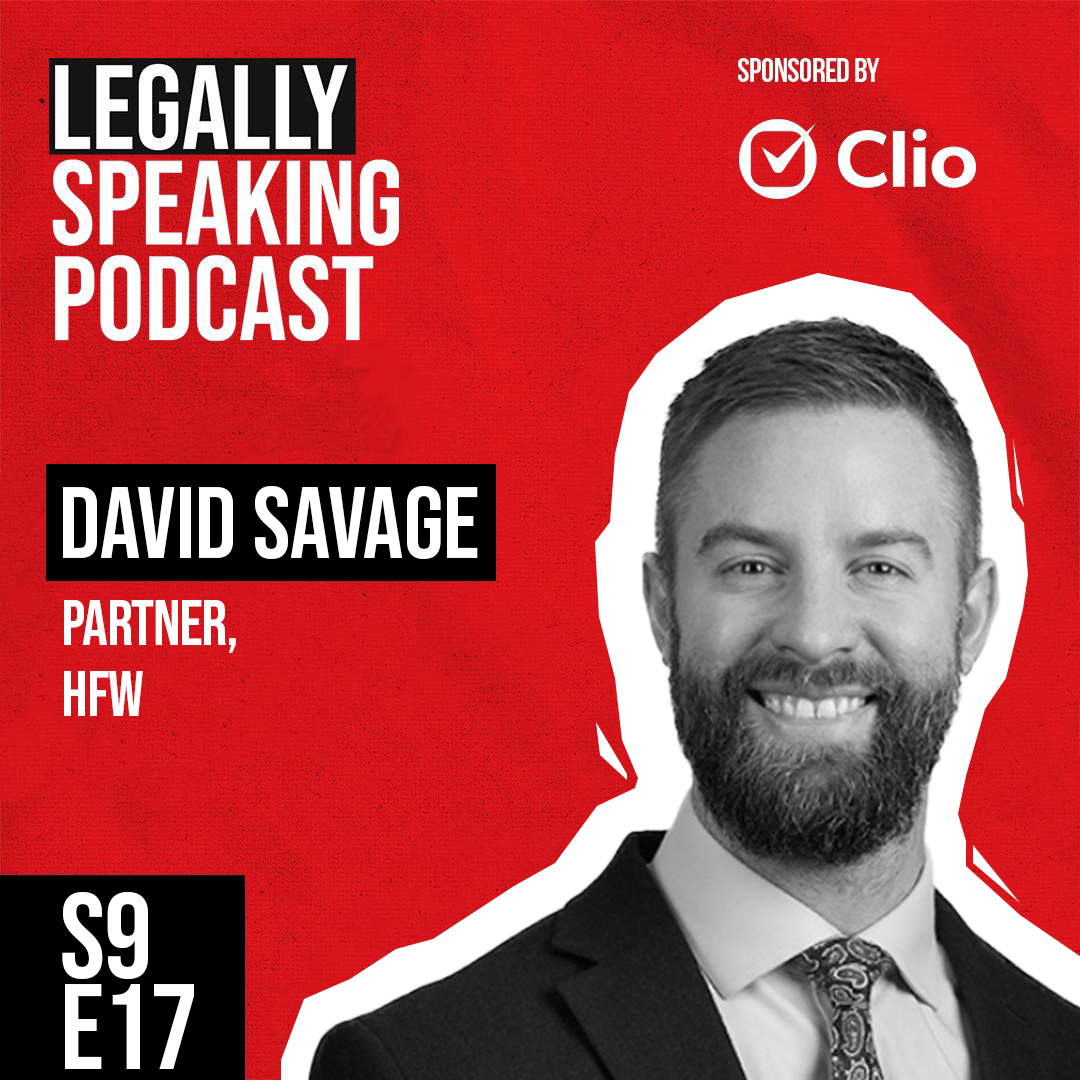
Fraud, corruption, money laundering, how do the world’s top lawyers tackle financial crime at the highest
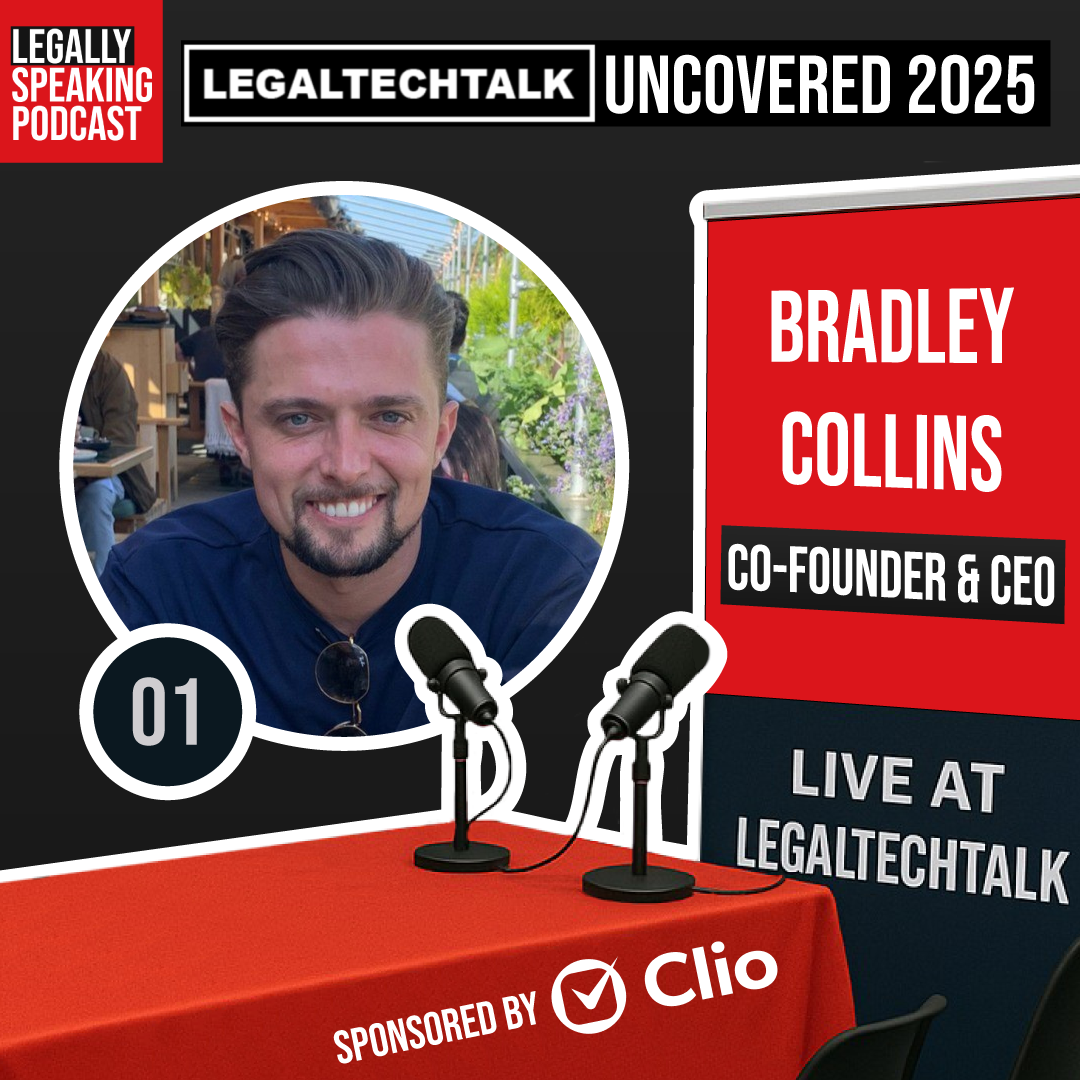
🚨 BREAKING NEWS: CEO of LegalTechTalk Shares What You Can’t Miss at #LTT25 🚨 🎤 This
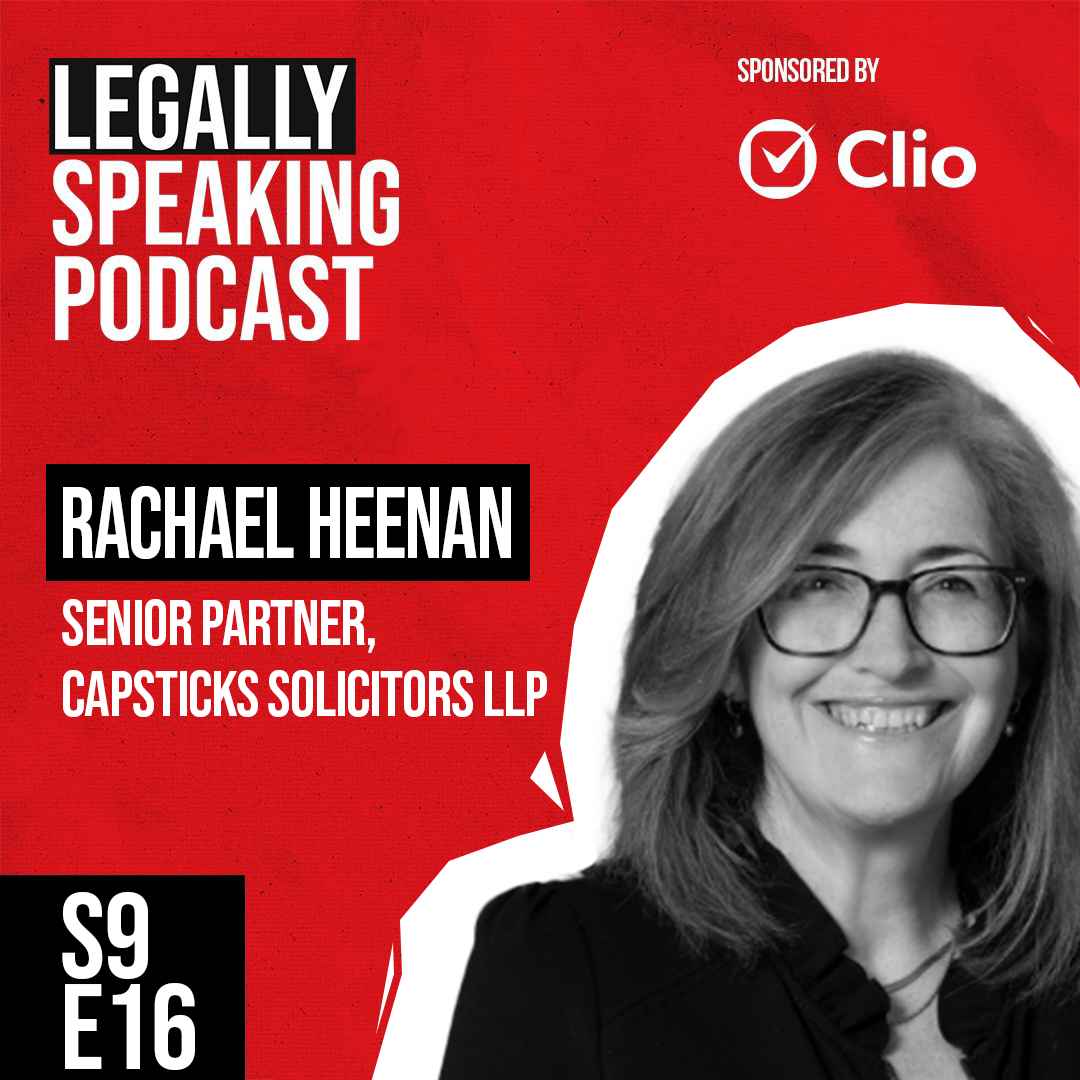
On today’s Legally Speaking Podcast, I am delighted to be joined by Rachael Heenan. Rachael is
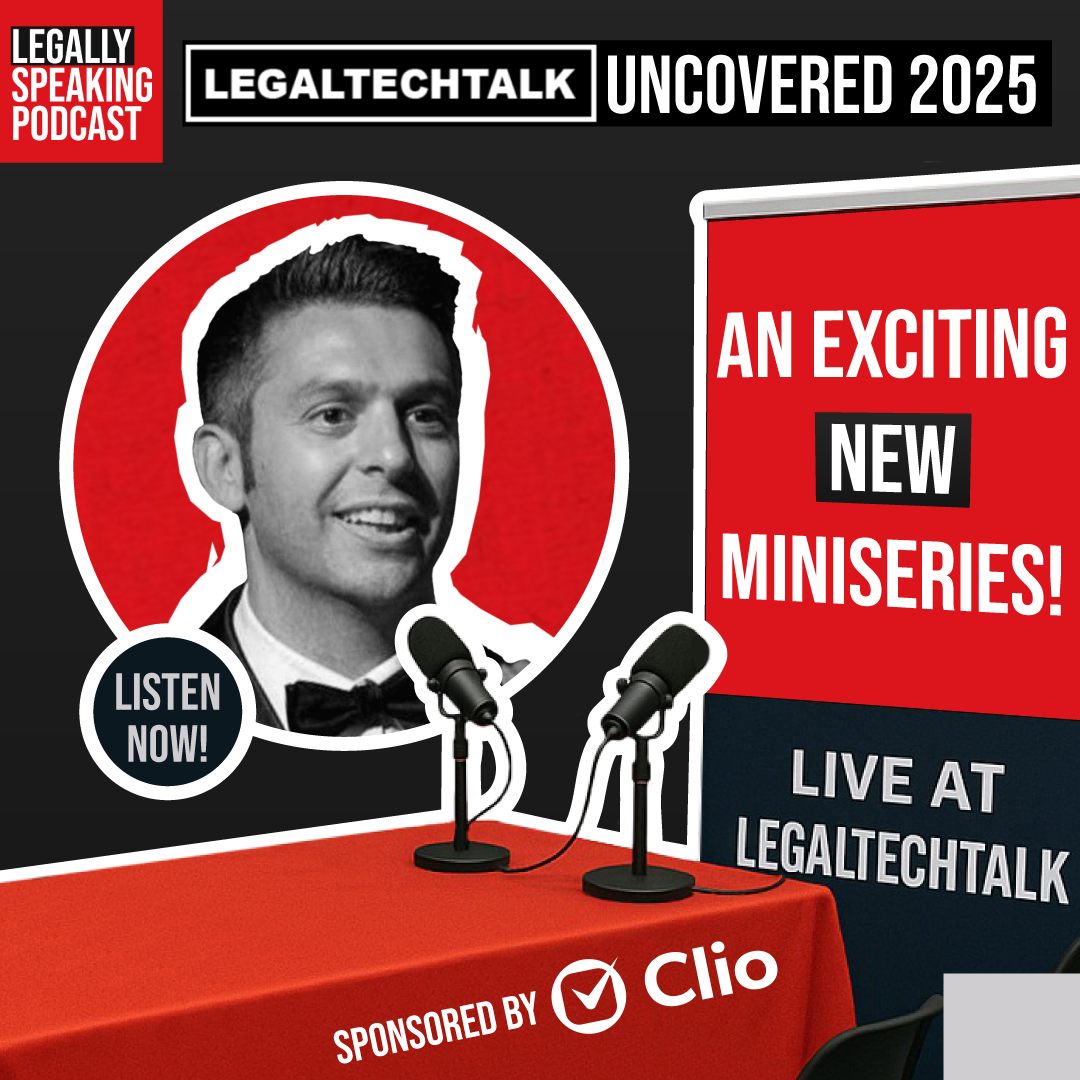
We’re bringing the heat to LegalTechTalk 2025 🔥 The Legally Speaking Podcast ™️ — proud returning
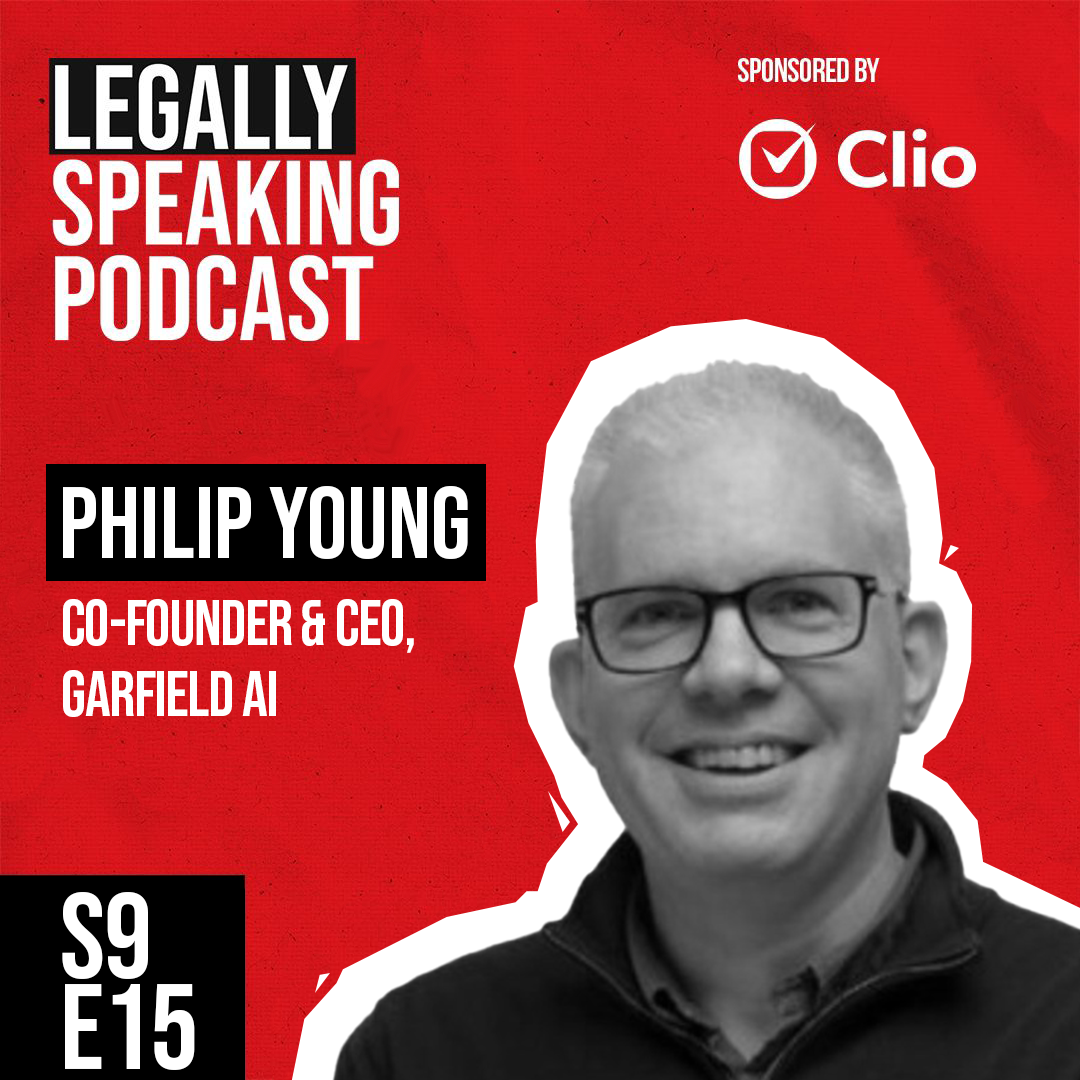
On today’s Legally Speaking Podcast, I’m delighted to be joined by Philip Young. Philip is the

*DISCLAIMER* All episodes are recorded at certain moments in time and reflect those moments only. The podcast does not support or associate itself with any inappropriate behaviour or actions that may have occurred after recording.